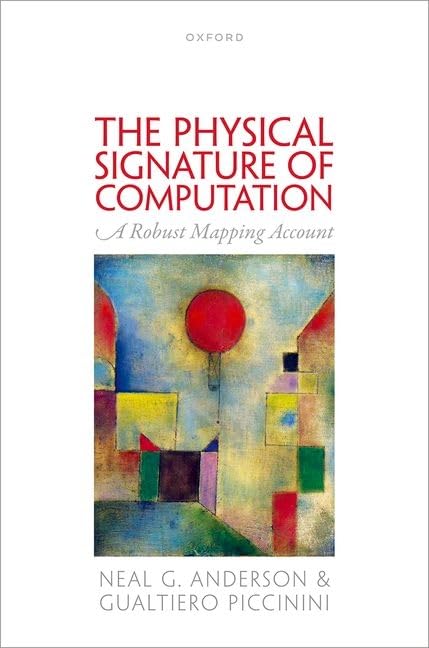New Book by Gualtiero Piccinini
The next publication we'd like to highlight is The Physical Signature of Computation: A Robust Mapping Account, a new book by Gualtiero Piccinini, the Florence G Kline Chair in Philosophy at MU, and Neal G Anderson, Professor of Electrical and Computer Engineering at UMass-Amherst. Published in September 2024, this work tackles the philosophical and physical aspects of computation.
"Neal Anderson and Gualtiero Piccinini’s The Physical Signature of Computation establishes a new benchmark in the philosophy of computation for determining when a concrete physical system plausibly implements an abstract computation... The Physical Signature of Computation offers a rigorous standard for identifying computational systems, bridging philosophy, physics, and information theory... I believe the book will prove to be essential reading for years to come." From John F. W. Smiles's review in Metascience.
Abstract
This book articulates and defends the robust mapping account—the most systematic, rigorous, and comprehensive account of computational implementation to date. Drawing in part from recent results in physical information theory, it argues that mapping accounts of implementation can be made adequate by incorporating appropriate physical constraints. According to the robust mapping account, the key constraint on mappings from physical to computational states—the key for establishing that a computation is physically implemented—is physical-computational equivalence: evolving physical states bear neither more nor less information about the evolving computation than do the computational states they map onto. When this highly nontrivial constraint is satisfied, among others that are spelled out as part of the account, a physical system can be said to implement a computation in a robust sense, which means that the system bears the physical signature of that computation. The book applies this robust mapping account to important questions in physical foundations of computation and cognitive science, including the alleged indeterminacy of computation, pancomputationalism, and the computational theory of mind. It shows that physical computation is determinate, nontrivial versions of pancomputationalism fail, and cognition involves computation only insofar as neurocognitive systems bear the physical signature of specific computations. It also argues that both consciousness and physics outstrip computation.
